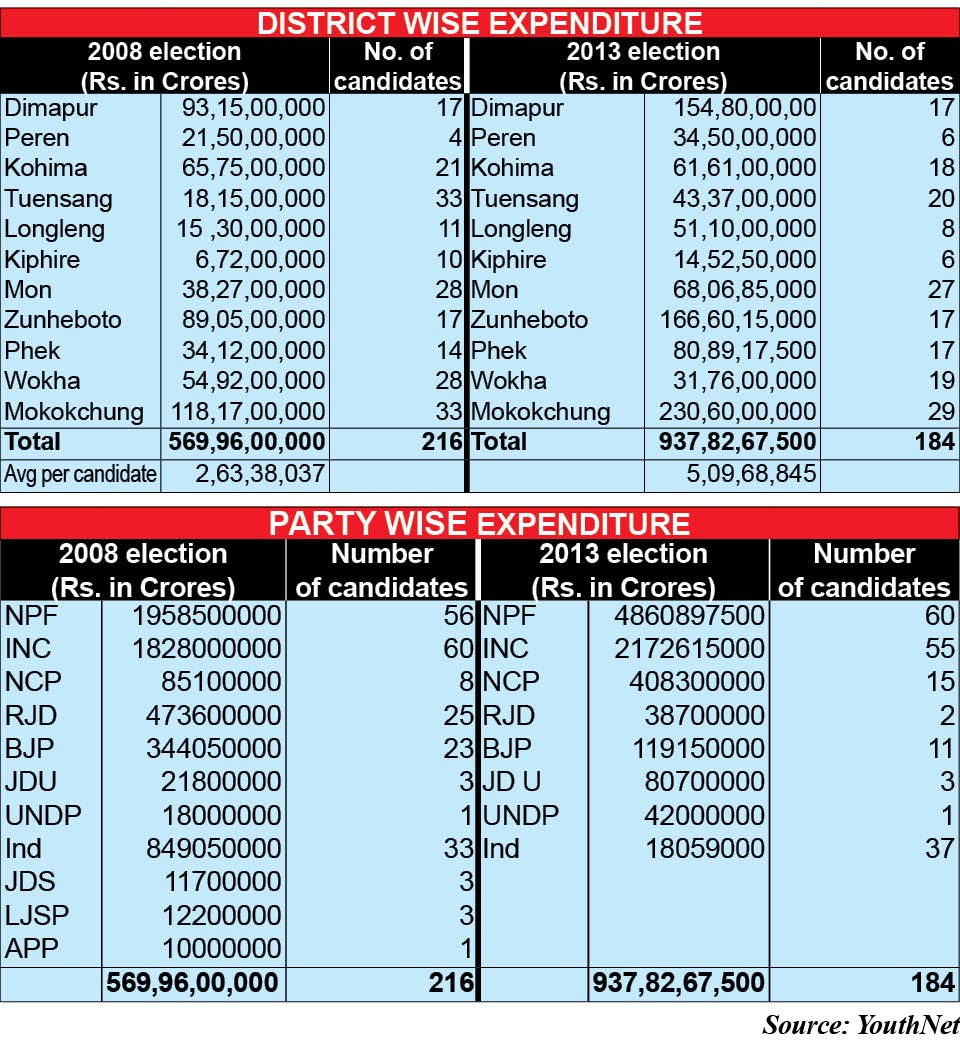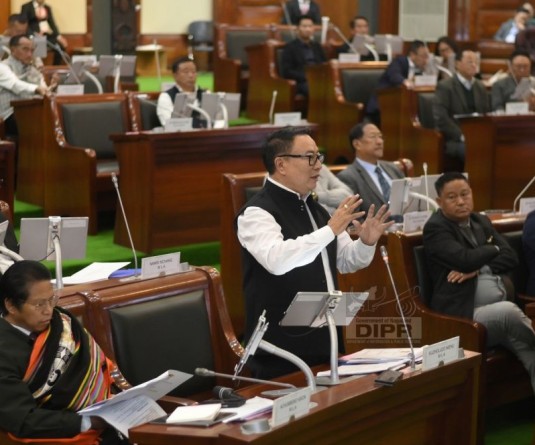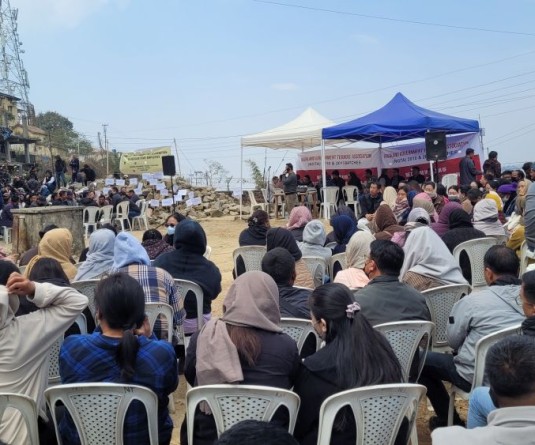
Morung Express News
Dimapur | April 8
The call for free and fair elections in Nagaland has morphed into a case of ‘who will bell the cat?’ Talk, declaration and pledges exist but have not yet evolved into decisive action.
The problems are well within grasp yet the stakeholders – the electorate and the electoral candidates – have been shifting responsibility to one another.
Bringing the two perspectives together to an open space for dialogue and engaging with the prevailing electoral system was at the core of the 8th Morung Lecture, titled ‘Clean Elections: Framing the Issues in Nagaland’, organised in Dimapur at the DABA’s Elim Hall here today.
Election in perspective
According to Y. Vikheho Swu, Nagaland State Minister for Roads & Bridges, understanding the purpose of elections “in its right perspective” will go a long way in moulding the right attitude. “Someone must take the initiative. Change should first begin in the way both you and I think and take corrective measures.”
In his presentation, Swu observed that elections in Nagaland have been reduced to gaining personal favour in exchange for a vote cast.
He said that voting in the rural areas is defined by “who offers first or offers more” or who makes the first approach, no less dictated by family, clan, village or range affiliations.
To the urban voters, besides money, it is about securing a government job, promotion and transfer to a preferred place of posting. In addition, it has given undue advantage to government servants via “political patronage,” he said.
As regards the impetus to change, he said that educated Nagas irrespective of social status must involve with all sincerity. He also underlined the importance of bringing on board the political parties along with the Hohos, student bodies and the church, irrespective of denomination.
“A successful campaign plan must be worked out. Synchronising all the groups under one head, perhaps, the NBCC since it started with them.”
While lauding the NBCC’s effort during the 2013 elections, he held that it started and ended at the “pulpit.” He though conceded it was not a failure altogether stating that the practice of “running messes” for voters and the use of alcohol were reduced.
A vicious cycle Hekani Jakhalu, founder director of YouthNet, while presenting a comparative assessment of election expenses by candidates during 2008 and 2013, observed that people take money from politicians on the understanding that politicians “have eaten up their money.” Politicians, on the other hand, spend their term in office making up for the monetary loss. While stating that this provides just the right environment for corruption to take root, she said, “It is a vicious cycle which has to be broken.” Referring to the hundreds of crores spent on electioneering, Jakhalu said that on the contrary post-election expenditure affidavits submitted by candidates state that none spent more than Rs. 20 lakhs.
The issues of the involvement of Naga Political Groups (NPGs), excess employment, inflated electoral rolls, relation between election expenses and the yearly financial deficit and selection of candidates figured during the question-answer session in which old and young participants took part.
Swu, responding to a query on the assumed relation between the yearly financial deficit and election expenses of candidates, held that they cannot be related. However Jakhalu differed stating that the two are, either directly or indirectly, referring to the vicious cycle of corruption that has set in.
On the question of selection of candidates, he said that people most often go for a candidate who has money and power, but rarely examine the person’s integrity.
As for the involvement of NPGs, Swu commented, “No one has the answer to that question. They should not involve but we have no control over them.” For Methna Konyak, a former leader of the Konyak Students Union, clean elections should begin with being honest about the population census and the E-roll.
Setting a trend of contesting elections without using money to buy votes was strongly asserted by Arthur Edwards, Administrator of Livingstone Foundation Higher Secondary School and Dr. Panger Kechu, lecturer at Oriental Theological Seminary. In the words of Dr. Panger, “We need role models, people, who can assert that they will not buy votes, whether they win or lose.” Can Nagaland’s politicians stand up to play this role?
While the imagined change may not happen overnight, Rev. Dr. Wati Aier, who was also part of the audience, commented, “A process of social change comes very slowly.”
With Nagaland set to go into an election year in 2018, the Morung Lectures seek to continue to facilitate discussion on some of these difficult issues. As Editor of The Morung Express, Dr. Aküm Longchari, said in his concluding remarks, true understanding entails the understanding of differences. The Morung Lectures create space to bring differing and divergent voices to listen to each other in order to break the status quo.






